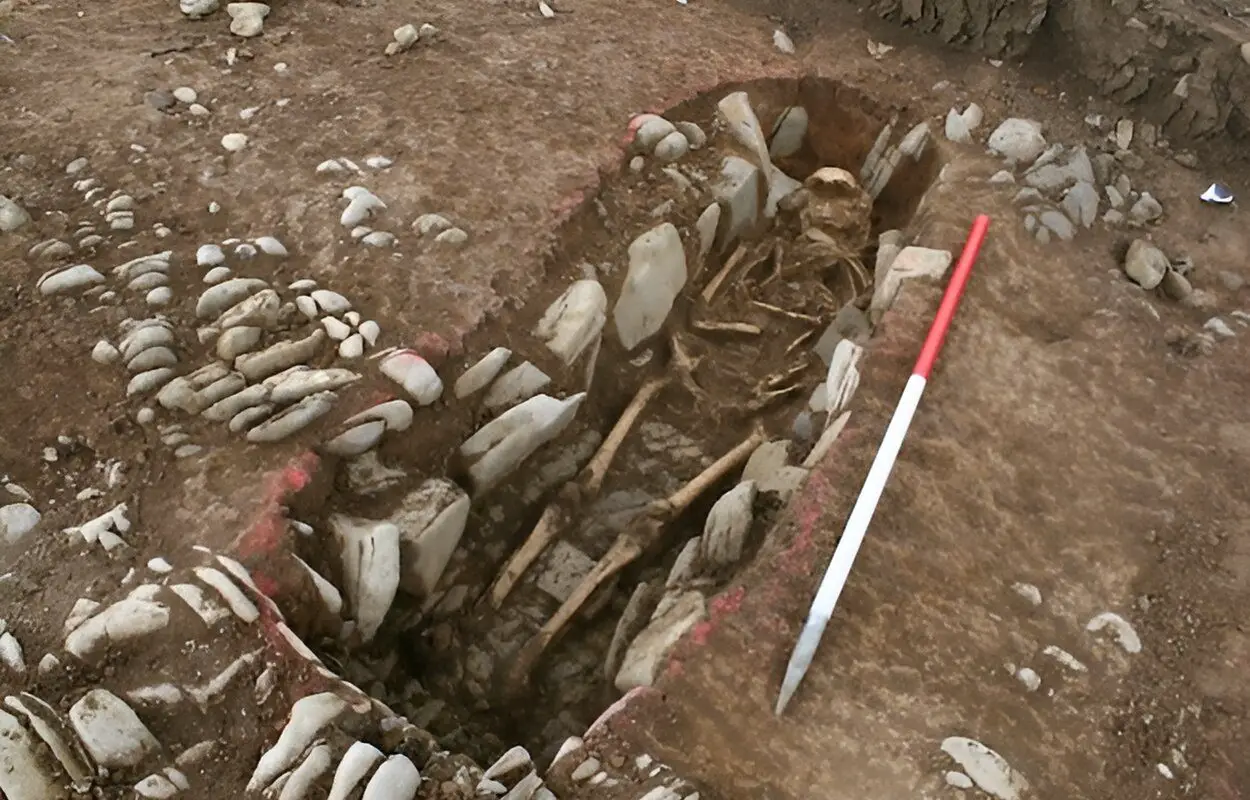Archaeologists excavating within the grounds of Fonmon Castle in South Wales have uncovered evidence of Medieval grave-side feasting rituals.
Fonmon Castle was constructed around 1180, however, the origins of the castle are poorly documented and most of its early history has been derived through studying the castle architecture.
It is alleged that Oliver St John of Fonmon, one of the Twelve Knights of Glamorgan, was responsible for the construction of the castle during the Norman conquest of Glamorgan.
A recent excavation of a cemetery within the castle grounds has uncovered fragments of animal bone, some displaying evidence for butchery and cooking, metal working debris, and pieces of rare imported glass drinking vessels. According to the researchers, this material likely relates to grave-side feasting rituals from 1,400-years-ago.
Dr Andy Seaman, Lecturer in Early Medieval Archaeology, said: “This is a really exciting discovery. Sites of this date are extremely rare in Wales and often do not preserve bone and artefacts. The Fonmon cemetery will allow us to discover so much about the people who lived here around 1,400 years ago.
Archaeologists believe that the cemetery holds up to 80 burials, some of which are deposited in crouched body positions. “Other similar sites have found bodies in crouched positions such as this, but considering the number of graves we have looked at so far, there seem to be a high proportion. This could be evidence of some sort of burial rite being carried out,” said Dr Seaman.
He added: “There is nothing to suggest that people were living near the site, so the evidence of cooking and glasses certainly suggests some level of ritual feasting, perhaps to celebrate or mourn the dead.”
Header Image Credit : Cardiff University





